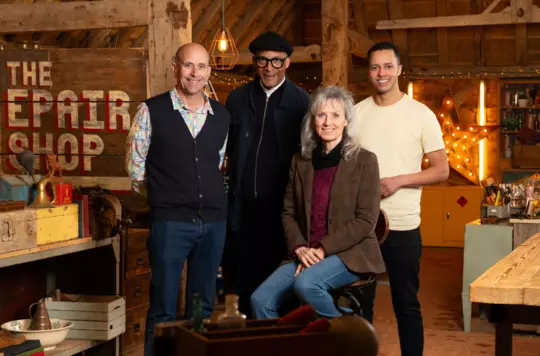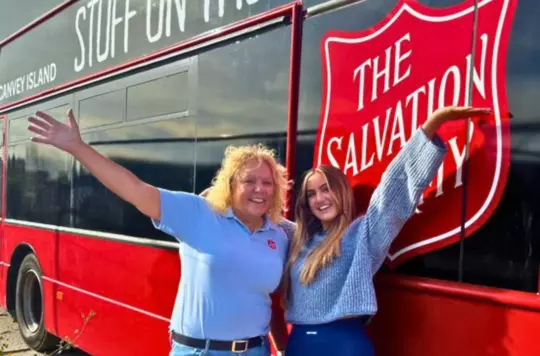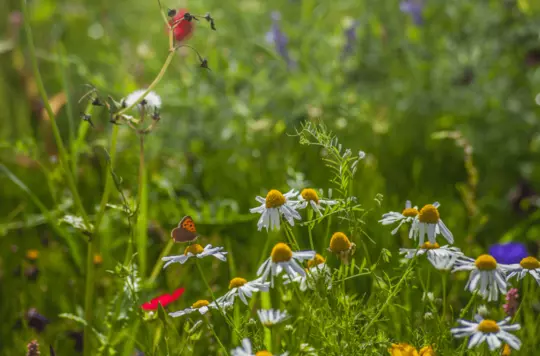15 June 2024
Make do and mend
George Tanton

George Tanton investigates how a new repair café in Wales is setting a sustainable trend.
The war generation, living through years of rationing and austerity, would think nothing of having to ‘make do and mend’. However, in today’s world of online shopping and fast fashion, a throwaway culture has emerged that has a damaging impact on the environment.
In Gorseinon, Swansea, the Salvation Army Trading Company Ltd (SATCoL) has opened a monthly repair café at its donation centre to teach the importance of upcycling and repairing goods.
‘A repair café offers to repair products for free that would likely go to landfill,’ explains Business Development Co-ordinator Karina Hare. ‘These include clothing, household electronics, toys, furniture and bikes.’
The initiative aligns with the Army’s care for creation mission priority and encourages people to live in a more circular economy. It is also part of SATCoL’s Dare to Care environmental strategy, which focuses on three areas: giving products a new lease of life, innovation in textile-to-textile recycling and reducing SATCoL’s carbon emissions to net zero by 2040.
Majonne Frost, SATCoL’s head of environment and sustainability, explains: ‘The production of new items has a really big impact on the environment. It creates carbon emissions from the use of fuels at all stages of the supply chain, all the way from farms to manufacturing sites. The more we look after the items that we own, the better for the environment.’
Social projects, such as repair cafés, support people as well as the planet.
‘As the cost of living crisis continues, people don’t want to go and buy new,’ explains Gareth Carnegie, the donation centre manager. ‘They would rather have the one item they’ve already paid for.’
As a community hub, the repair café also encourages individuals to pass on important restoration skills.
‘Repairers are always keen to offer up their skills,’ says Karina. ‘We encourage customers to sit with them to learn, empowering them to do it for themselves.’
Gareth observes how restoration work often leads to meaningful discussions and cross-generational connections: ‘You get the history of an item, how it’s been in a family for generations. We had a china figurine that belonged to a customer’s mother, and it had a little chip in it, but we managed to repair it because they had kept the piece. Something like that goes a long way, especially when you hear the chat between the repairer and customer. It makes you feel warm and fuzzy inside.’
‘Our jewellery specialist told me that most of the items she repairs aren’t necessarily valuable, but often the memories behind something make the piece priceless to its owner,’ says Karina. ‘She recalled repairing a clasp on a necklace for a customer who was 102 years old – the necklace had been given to her by her late husband during the Second World War.’
All types of people volunteer for the repair café.
‘We’ve got IT specialists and retired nurses,’ says Karina. ‘Sometimes volunteers have a keen interest in repairs and just want more experience.’
The repair café is growing in popularity. People from as far as Bridgend have brought items in. While it can proudly claim to be SATCoL’s first, it plans to establish another in Coventry with support from Repair Café International.
Majonne encourages the trend to continue.
‘The main thing you will need to get started are some enthusiastic volunteers,’ she suggests. ‘Once you get up and running there are bound to be other volunteers who come forward.’
Written by

George Tanton
Editorial Assistant
Discover more

As The Repair Shop continues on BBC One, Ron Thomlinson considers the power of memories.

War Cry's Philip Halcrow visits a SATCoL facility in Kettering to find out more about their textile recycling process.

George Tanton checks out the growth of social supermarkets.

Major Heather Poxon (THQ) unpacks the care for creation mission priority.